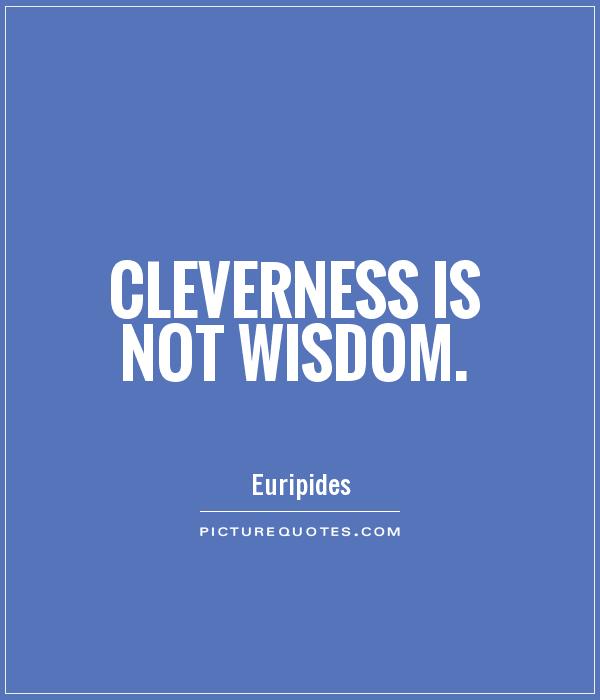Cleverness is not wisdom

Cleverness is not wisdom
In the context of Euripides' words, the idea that cleverness is not wisdom is a recurring theme in many of his plays. Euripides, a renowned Greek playwright, often explored the complexities of human nature and the consequences of relying solely on intellect without considering the moral implications of one's actions. This distinction between cleverness and wisdom is a central theme in many of his works, highlighting the importance of ethical decision-making and the limitations of mere intelligence.One of Euripides' most famous plays, "Medea," exemplifies this theme through the character of Medea herself. Medea is portrayed as a clever and resourceful woman who uses her intelligence to exact revenge on her unfaithful husband, Jason. However, her actions ultimately lead to tragic consequences, as her cleverness is overshadowed by her lack of wisdom in considering the moral implications of her actions. Despite her intelligence, Medea's lack of wisdom ultimately leads to her downfall, highlighting the dangers of relying solely on cleverness without considering the broader ethical implications of one's choices.
Similarly, in "The Bacchae," Euripides explores the consequences of hubris and the dangers of unchecked cleverness. The character of Pentheus, the king of Thebes, is portrayed as a clever and ambitious ruler who seeks to suppress the worship of the god Dionysus. However, his arrogance and lack of wisdom ultimately lead to his demise, as he underestimates the power of the god and is ultimately torn apart by his own people in a fit of madness. Through the character of Pentheus, Euripides warns against the dangers of relying solely on intellect without considering the moral and spiritual dimensions of one's actions.
Overall, Euripides' words serve as a powerful reminder of the distinction between cleverness and wisdom. While intelligence and cleverness are valuable traits, they must be tempered with wisdom and ethical consideration in order to avoid the tragic consequences of hubris and moral blindness. Through his plays, Euripides challenges his audience to reflect on the true nature of wisdom and the importance of ethical decision-making in the face of life's complexities.












 Friendship Quotes
Friendship Quotes Love Quotes
Love Quotes Life Quotes
Life Quotes Funny Quotes
Funny Quotes Motivational Quotes
Motivational Quotes Inspirational Quotes
Inspirational Quotes